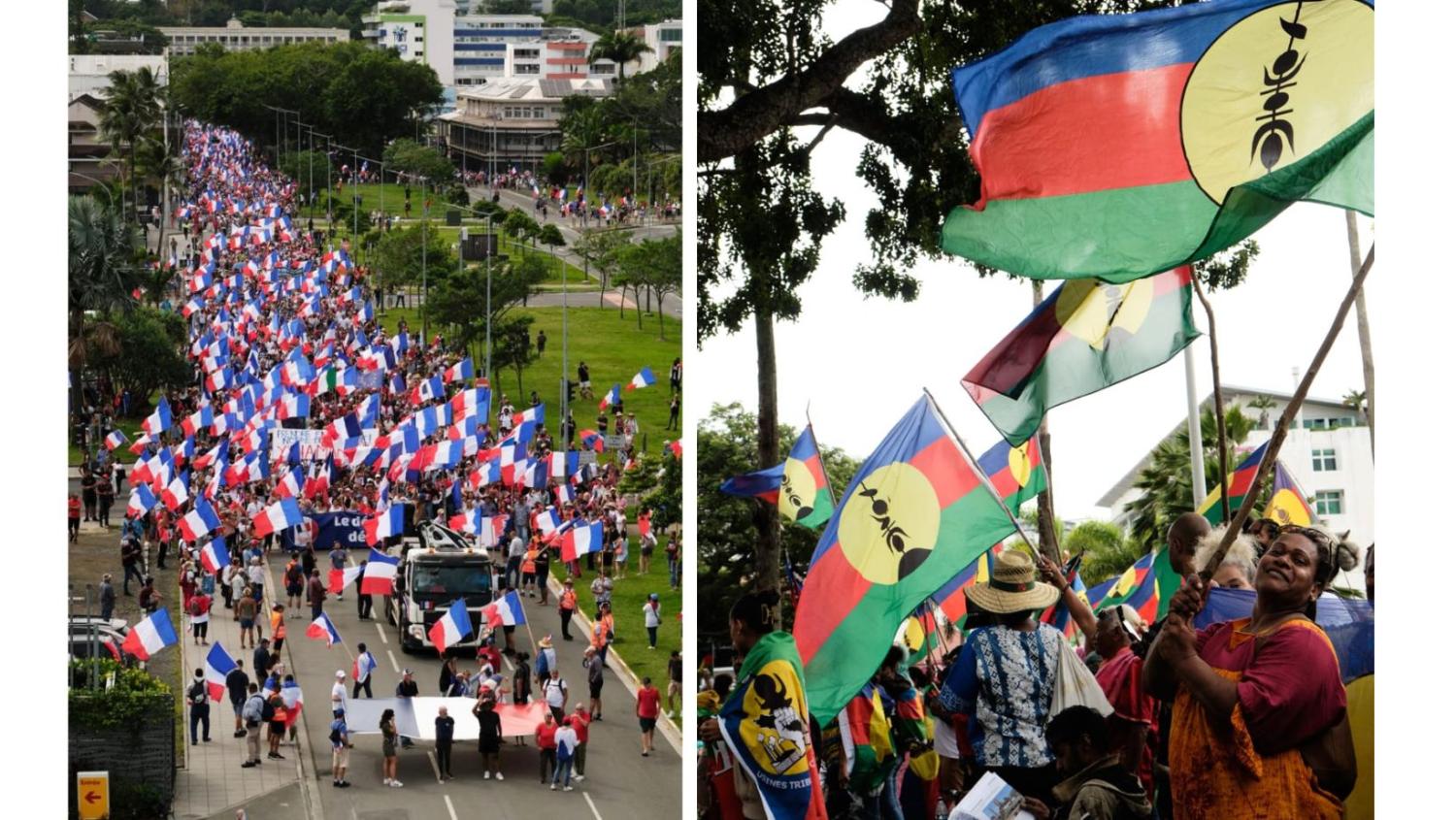Two years after the inconclusive third independence referendum under the 1998 Noumea Accord, uncertainty and tensions are mounting in New Caledonia. To force local discussion, French President Emmanuel Macron is imposing change through national legislation. But he has instead reinforced division, raising the ire of independence groups and bolstering the resolution of loyalists.
In December 2021, France dropped the ball implementing the final stage of the Noumea Accord. After impeccable impartiality holding the first two of three independence referendums, it ignored pro-independence indigenous opposition to holding the third at the height of Covid deaths in their communities. The resultant Kanak boycott nullified the outcome, with just 3.5% pro-independence votes, compared to 43.3% and 46.7% in the first two referendums.
France claims that in fulfilling its legal commitments, the three votes clearly showed New Caledonians supported staying with France. It has tried in vain to organise discussions about the future now required by the Accord. Kanak leaders want another vote, and some reject discussion. Loyalists see the three votes as conclusive. They want to weaken Noumea Accord provisions, particularly voter eligibility restrictions protecting indigenous residents, and entrench the territory within France.
France appears to be backing the loyalists. In January, it introduced national legislation to defer local elections due in April 2024, and proposed constitutional change to broaden voter eligibility unilaterally, unless local discussions begin. It claimed this would spur discussion, and fix an unintended glitch in voter eligibility excluding descendants of long-term residents.
But France also wants to prevent another local election under existing voter restrictions, which risks renewing the current independence majority government.
Voter eligibility restrictions were a fundamental precondition for Kanak leaders to sign agreements ending civil disturbances from 1988. Kanak leaders demanded only longstanding residents be allowed to vote in local elections, after years of France’s orchestrated immigration from other parts of France to outweigh indigenous independence supporters.
While differences exist between some independence parties over modifying the restrictions (some indicating flexibility, but only within an overall political agreement on the future), they are united in opposing France’s unilateral imposition of change by constitutional amendment.
Loyalists too differ over the future, and some leaders detest each other. But all want New Caledonia to stay French.
Differences have deepened as the French Senate considered Macron’s constitutional change, to impose a simple ten-year residence eligibility, unless discussions begin by 1 July 2024. Loyalists seized on the opportunity to pursue amendments, including a demand to re-jig the number of seats in the local Congress in their favour. Independence leaders protested as negotiations effectively shifted to Paris, where they cannot compete, among national parliamentarians with little knowledge or interest in New Caledonia. On 2 April, the Senate endorsed the constitutional change, albeit softening Macron’s intent, extending the deadline for local discussion to within two weeks of the next local elections (now December 2024). The National Assembly must endorse the exact text, after which a joint parliamentary session must endorse it by 3/5 vote.
France has failed to get local parties to sign on to its proposed nickel pact, a prerequisite for political agreement. New Caledonia is the fourth-largest exporter of nickel. Nickel markets have been blindsided by Indonesia’s production with Chinese (and French) funding, at far lower cost than in New Caledonia. France has propped up nickel production for years. Kanak leaders running the northern nickel plant have dug in. They threatened to deny the France-owned southern plant access to their mines without environmental and investment guarantees. They also declined to accept France’s funding to keep their northern plant running for a few months, opting to seek longer-term external investors.

Demonstrations are now the norm. Independence groups regularly demonstrate, opposing France’s heavy-handed tactics, with scattered recurrences of violence in St Louis, a longstanding crucible of social tension outside Noumea, and elsewhere. Loyalist-aligned businesses protested fiscal reforms by the independence-dominated Congress, and loyalist leaders walked out of the local Congress, declaiming its democratic legitimacy now that independence parties dominate.
On 13 April, both sides staged large demonstrations in different parts of Noumea over voter eligibility. More than 20,000 marched on each side, in peaceful protest. Loyalist leader Sonia Backès said the loyalist march was to support the “non-negotiable” relaxation of voter eligibility provisions and the three-times vote to stay French, and to tell Paris that “we too can make trouble”. Independence groups demanded the withdrawal of the constitutional amendment imposing change without local consensus, and an impartial mission to pursue local discussions. Organisers pointed to France destabilising discussions by its unilateral action, and their commitment to decolonisation.
A local academic, Louis-José Barbançon, in a paper titled “There is still time”, compares the current situation to the 1980s, when bloody disturbances and a similar referendum boycott ultimately forced France to negotiate with pro-independence parties. The parallels are ominous.


